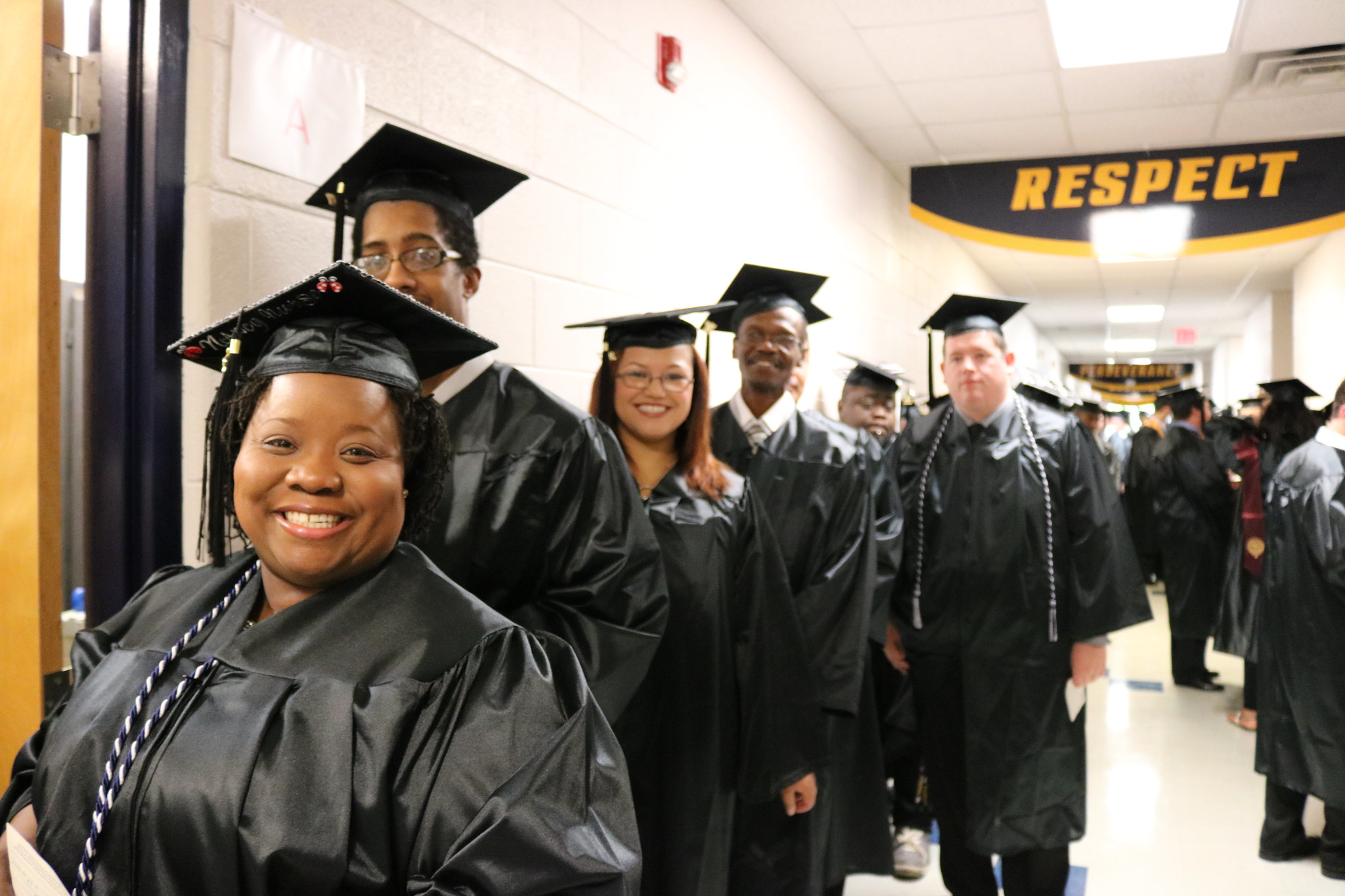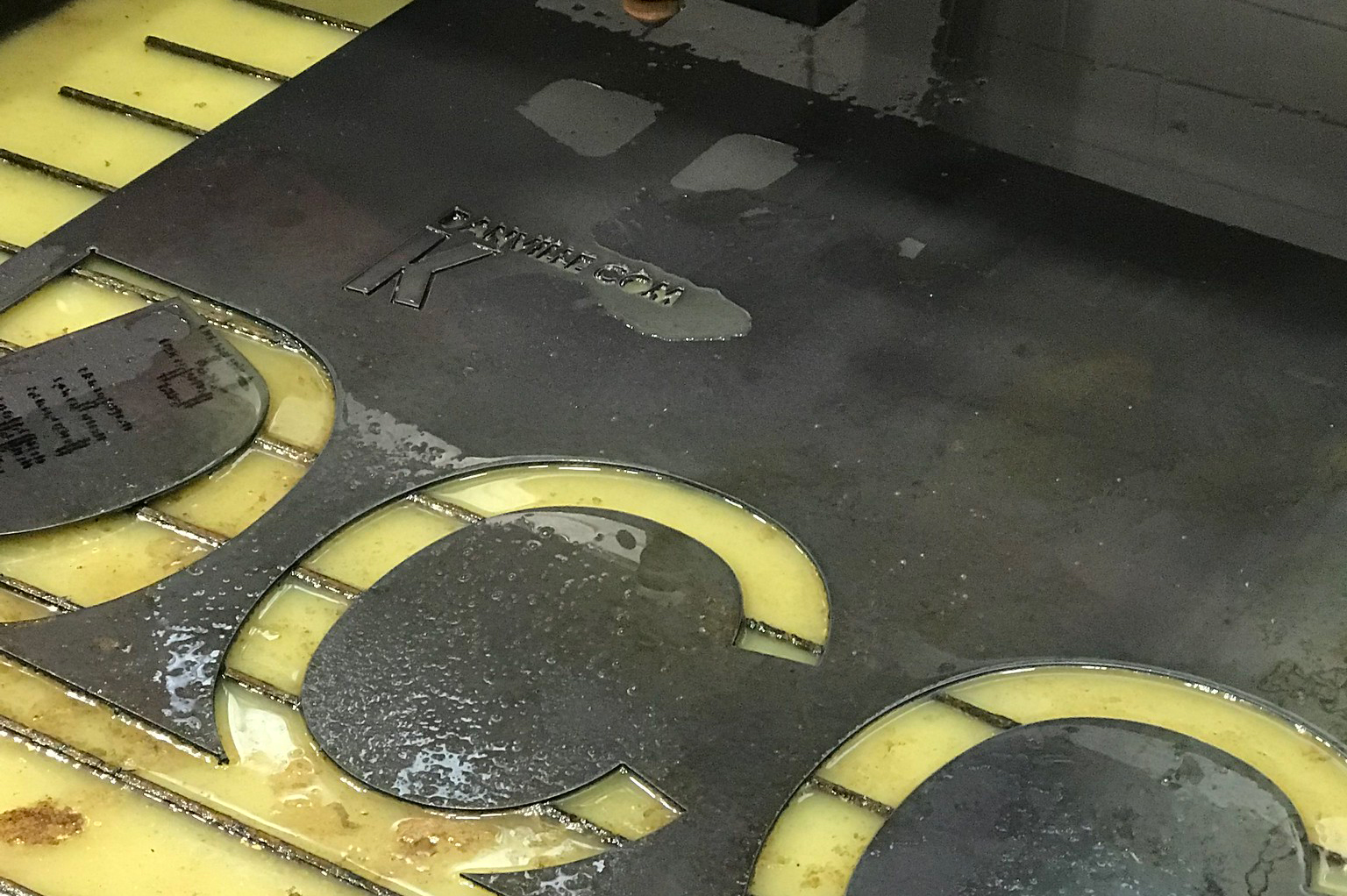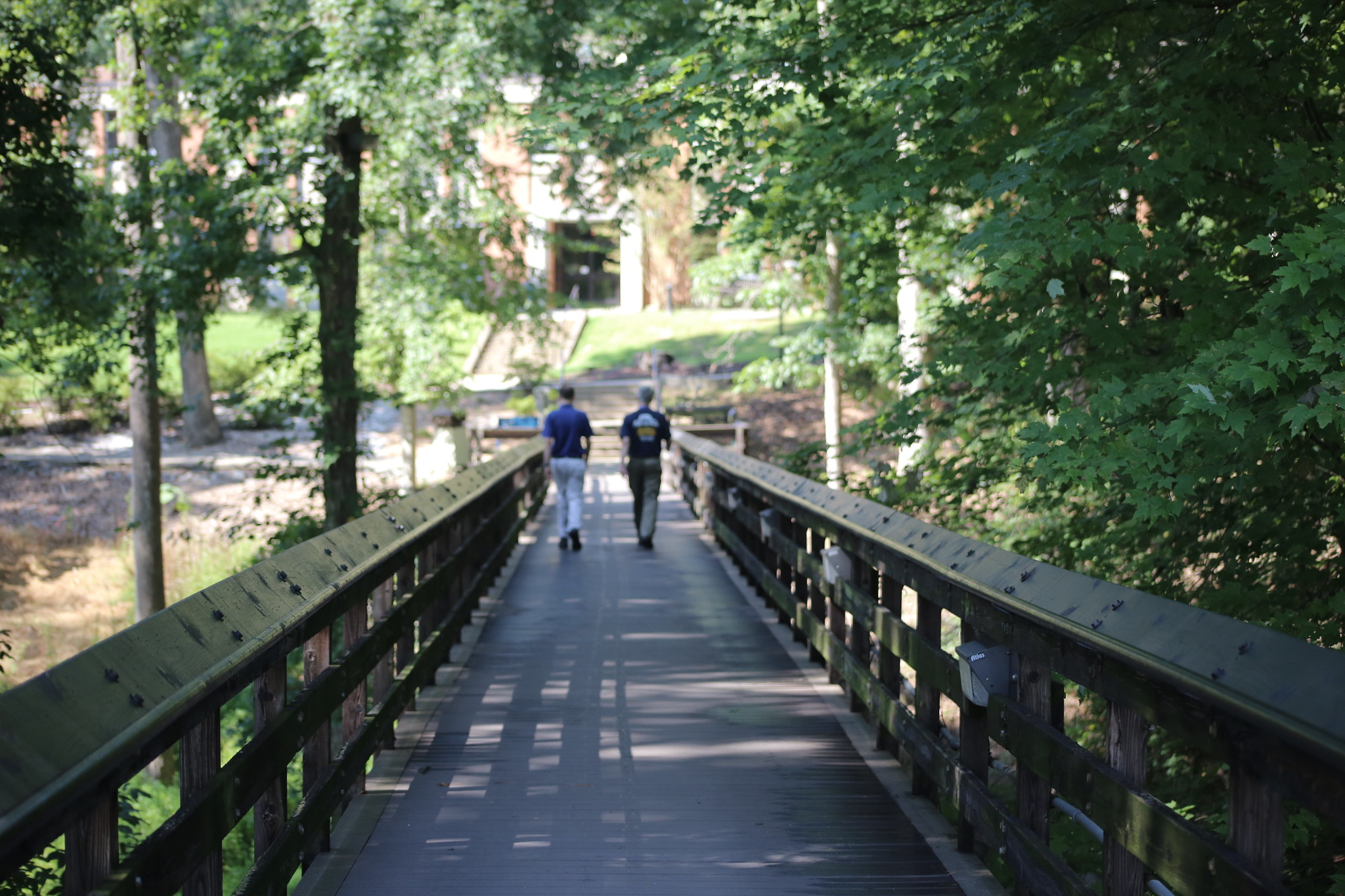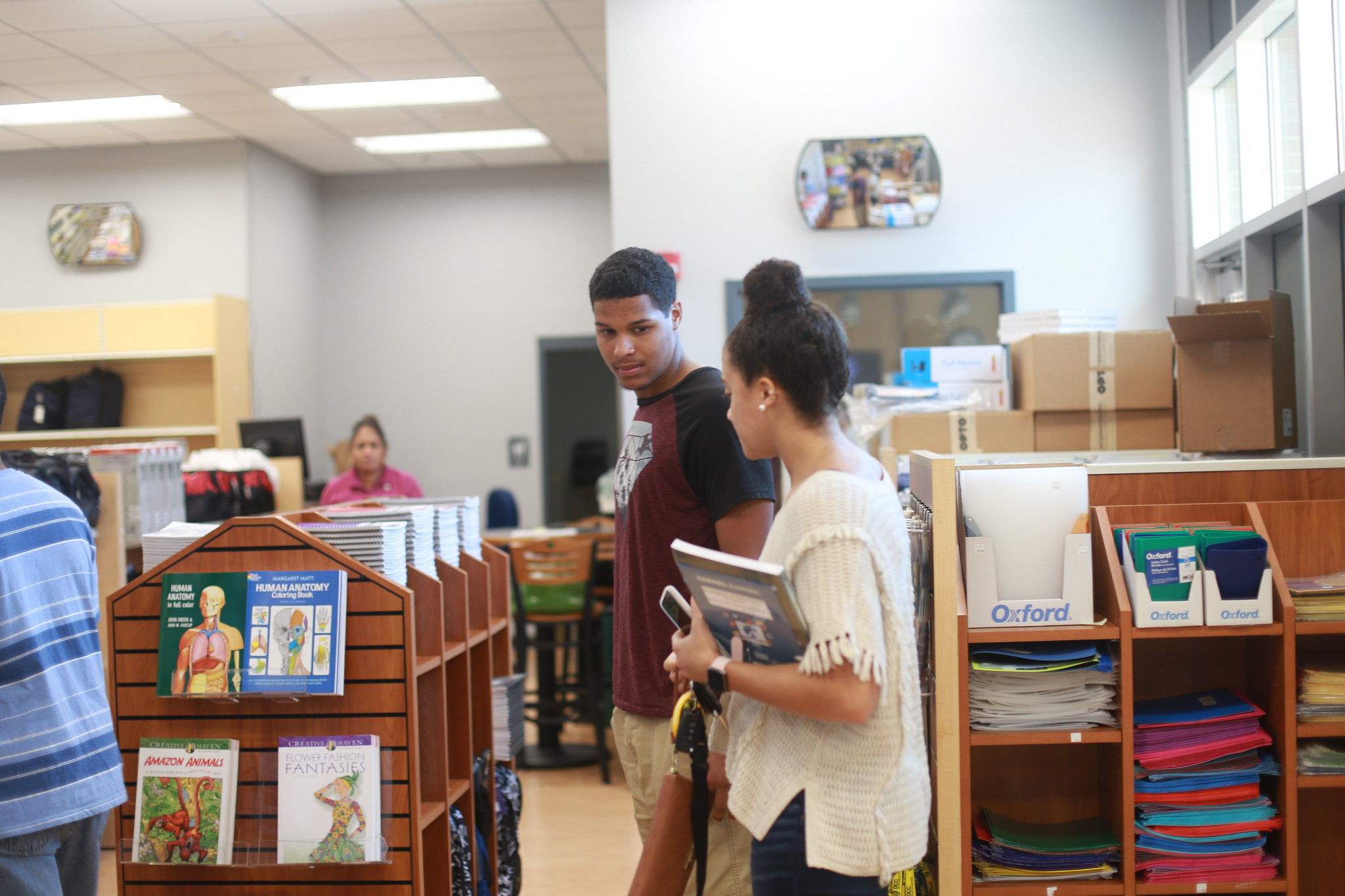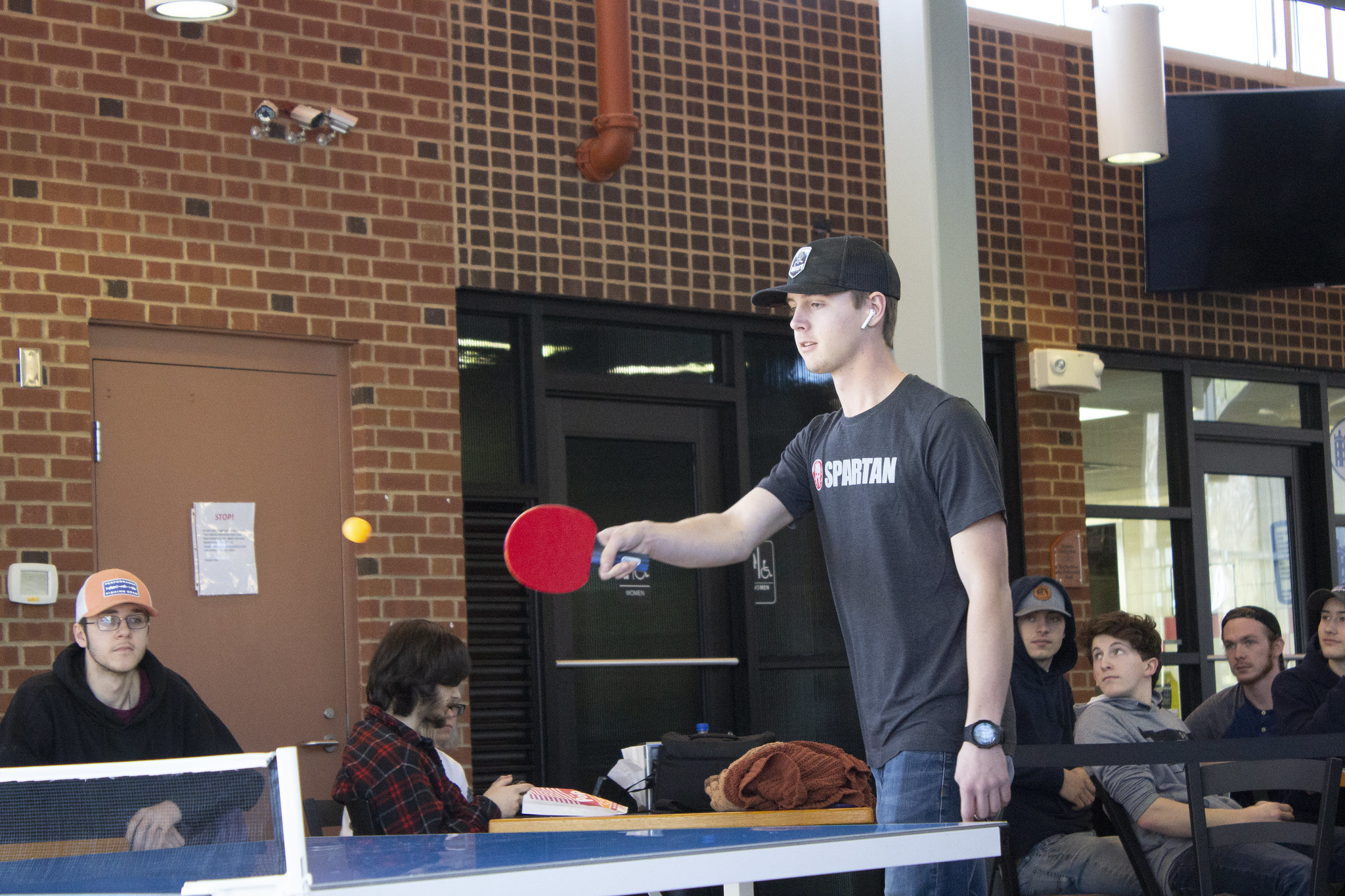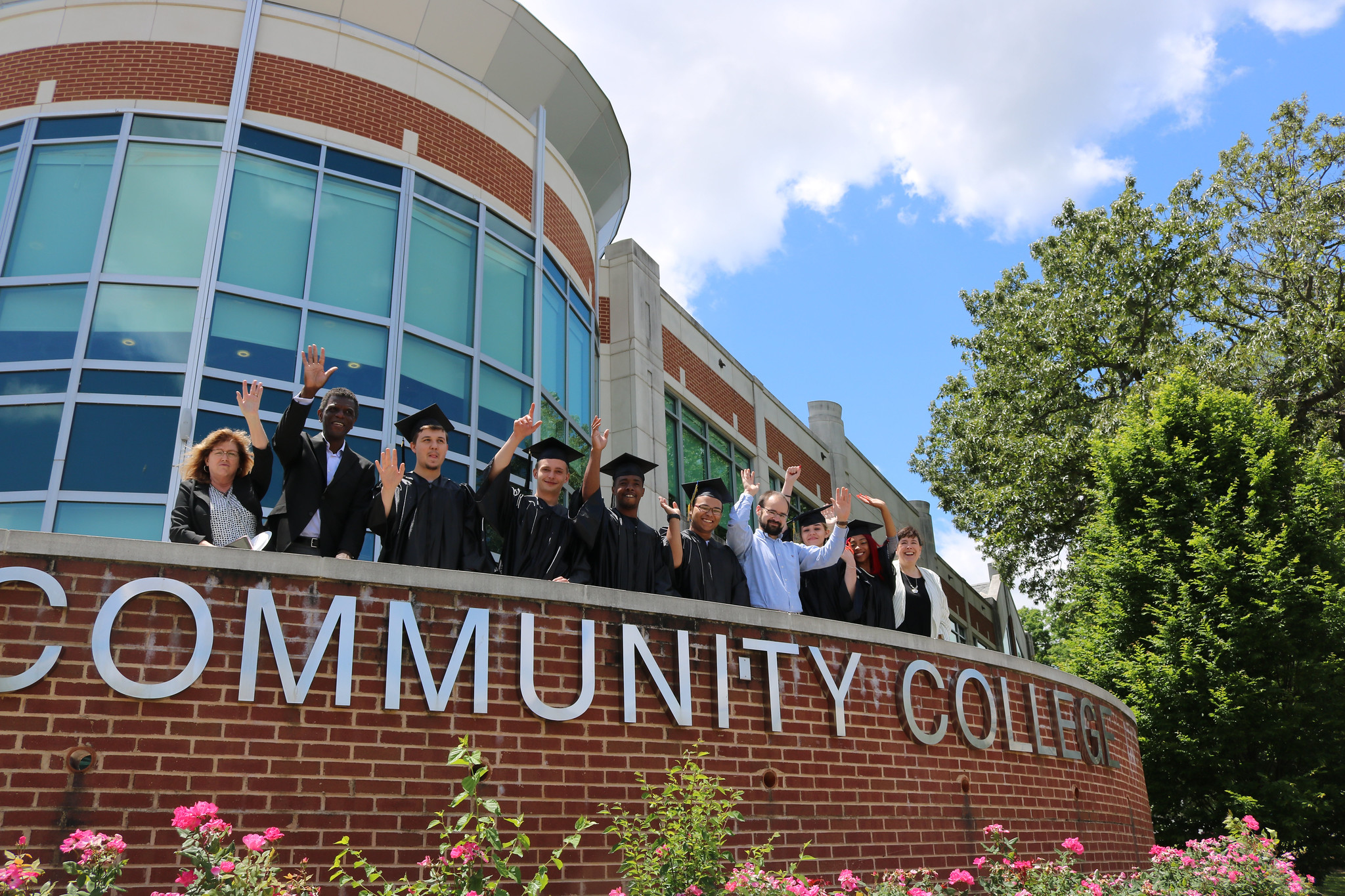At Danville Community College, we believe in fostering an environment that values open dialogue, varied perspectives, and the free exchange of ideas. This webpage serves as a comprehensive resource outlining our commitment to protecting and promoting the principles of free speech within our academic community. We recognize the vital role that free expression plays in the pursuit of knowledge and the development of a vibrant and inclusive learning environment.
Please explore the guidelines and principles that underscore our dedication to upholding the fundamental right to free speech for all members of the Danville Community College community using the tabs below.
- Danville Community College Expressive Activity Policy
6.5.1 Policy on Expressive Activity
This policy applies to all buildings, grounds, and other spaces owned or controlled by a college. The term “expressive activity” includes:
- Meetings and other group activities of students and student organizations;
- Speeches, performances, demonstrations, rallies, vigils, and other events by students, student organizations, and outside groups invited by student organizations;
- Distributions of literature, such as leafleting and pamphleting; and
- Any other expression protected by the First Amendment to the U.S. Constitution.
6.5.2 Policy Statement
College property is primarily dedicated to academic, student life and administrative functions. But it also represents the “marketplace of ideas,” and especially for students, many areas of campus represent a public forum for speech and other expressive activities. Colleges may place restrictions on expressive activities occurring indoors, but especially for students and student organizations, the outdoor areas of campus remain venues for free expression, including speeches, demonstrations, and the distribution of literature.
Indoors or outdoors, colleges shall not interfere with the rights of individuals and groups to the free expression of their views or impermissibly regulate their speech based on its content or viewpoint. Nevertheless, colleges may establish reasonable time, place, and manner restrictions on expressive activity. Such restrictions must be content-neutral, narrowly tailored to serve a significant governmental interest, and allow ample alternative channels for communication of the information.
No event or expressive activity shall be permitted to violate or hinder the rights of others within the campus community or substantially disrupt normal college operations.
6.5.2.0 Procedures
- Reserving Campus Facilities:
- If students, student organizations, or college employees desire to reserve campus facilities, they shall submit their requests to the appropriate college administrator. Colleges normally may not require more than twenty-four hours advance notice for reservation requests. More notice may be required to allow for sufficient logistical support and to ensure the safety and security of the campus.
- If individuals or organizations who are not members of the college community (i.e., not students, student organizations, or college employees) desire to reserve campus facilities, they must be sponsored by a recognized student organization or the college to conduct expressive activities or events on campus.
- Colleges may designate certain indoor facilities as not available for expressive activity, such as administration offices, libraries, and (during instructional hours) classrooms. Colleges shall make the campus community aware of such areas. Any other restrictions on expressive activities occurring in indoor facilities must (a) apply equally to all individuals and organizations and (b) not depend upon the content or viewpoint of the expression or the possible reaction to that expression.
- Students, student organizations, and college employees may request to reserve campus facilities on a first-come, first-served basis. These requests may be denied for the following reasons only:
- The requested venue is an indoor facility that the college has designated as not available for expressive activity under section 6.5.2.0(a)(3) of this policy;
- The requested venue is an indoor facility and the request conflicts with restrictions enacted pursuant to section 6.5.2.0(a)(3) of this policy;
- The venue is already reserved for another event;1
- The activity will attract a crowd larger than the venue can safely contain;
- The activity will substantially disrupt another event being held at a neighboring venue;2
- The activity will substantially disrupt college operations (including classes);
- The activity is a clear and present threat to public safety, according to the college’s police or security department;
- The activity will occur during college examination periods; or
- The activity is unlawful.
- During an event, the student, student organization, or college employee requesting the reservation is responsible for preserving and maintaining the facility it reserved. If it causes any damage to those facilities, the person(s) or organization (and its officers, if applicable) shall assume responsibility.
- When assessing a request to reserve campus facilities, colleges and their administrators must not consider the content or viewpoint of the expression or the possible reaction to that expression. Colleges and their administrators may not impose restrictions on students, student organizations, or college employees due to the content or viewpoint of their expression or the possible reaction to that expression. In the event that other persons react negatively to a student’s, student organization’s, or college employee’s expression, college officials (including college police or security) shall take all necessary steps to ensure public safety while allowing the expressive activity to continue.
- If students, student organizations, or college employees desire to reserve campus facilities, they shall submit their requests to the appropriate college administrator. Colleges normally may not require more than twenty-four hours advance notice for reservation requests. More notice may be required to allow for sufficient logistical support and to ensure the safety and security of the campus.
- Spontaneous Expressive Activity:
- Colleges are not required to designate any indoor area as available for spontaneous expressive activities. In the event that colleges elect to do so, college officials shall prominently post the areas in which students, student organizations, and their sponsored guests may engage in spontaneous expressive activities. Any areas so designated must (a) apply equally to all students and student organizations and (b) not depend upon the content or viewpoint of the expression or the possible reaction to that expression
- For outdoor campus facilities and areas, students, student organizations, and their sponsored guests may freely engage in spontaneous expressive activities as long as they do not (a) block access to campus buildings, (b) obstruct vehicular or pedestrian traffic, (c) substantially disrupt previously scheduled campus events,3 (d) substantially disrupt college operations, (e) constitute unlawful activity; or (f) create a clear and present threat to public safety, according to the college’s police or security department.
- No college personnel may impose restrictions on students, student organizations, or their sponsored guests who are engaging in spontaneous expressive activities due to the content or viewpoint of their expression or the possible reaction to that expression. In the event that other persons react negatively to these activities, college officials (including college police or security) shall take all necessary steps to ensure public safety while allowing the expressive activity to continue.
- Colleges are not required to designate any indoor area as available for spontaneous expressive activities. In the event that colleges elect to do so, college officials shall prominently post the areas in which students, student organizations, and their sponsored guests may engage in spontaneous expressive activities. Any areas so designated must (a) apply equally to all students and student organizations and (b) not depend upon the content or viewpoint of the expression or the possible reaction to that expression
- Implementation; Report:
- Each college must include this policy in its student handbook, on its website, and in its student orientation programs.
- Each college must develop a process for members of the campus community and invited guests to report incidents of disruption of constitutionally protected speech. Such a process may include, but is not limited to, providing online incident reporting, providing contact information for a designated college official, and in cases of emergency, contact information for campus or local police or campus security.
- All colleges must maintain materials on the policy and provide such materials to any employee responsible for the discipline or education of enrolled students. Colleges may provide such materials to other employees if so desired.
- All college policies and materials on expressive activities must have prior approval from the Office of System Counsel.
- Colleges must develop policies and procedures to comply with the requirements of Va. Code 23.1-401.1, and notify the Office System Counsel as soon as practicable, but no later than 20 days after being served with a complaint that alleges a violation of the First Amendment.
- Each college must include this policy in its student handbook, on its website, and in its student orientation programs.
1 In the event that multiple individuals or organizations submit conflicting reservation requests, the following order of precedence shall govern: (1) official college sponsored activities and events; (2) recognized student organization activities and events; (3) student activities and events; and (4) all other activities and events.
2 The expression of competing viewpoints or multiple speakers in proximity to each other does not, without more, constitute a substantial disruption.
3 The expression of competing viewpoints or multiple speakers in proximity to each other does not, without more, constitute a substantial disruption. - Frequently Asked Questions for Students
Q. What is expressive activity?1
A. Expressive activities are speech-related activities, including:- meetings;
- other group events or activities by student organizations or their invited guests;
- speeches;
- performances;
- demonstrations;
- rallies;
- vigils;
- distributions of literature; and
- any other activity protected by the First Amendment.
Q. What kind of speech is protected by the First Amendment?
A. The U.S. Constitution protects most speech, with very limited exceptions. In outdoor spaces, the college may place reasonable limits only on the time, place, and manner of your expressive activity, and those limits must not depend on the content or viewpoint of the expressive activity. In addition, for outdoor areas, students, student organizations, and their guests are not required to give notice before engaging in expressive activity. In other words, students, student organizations, employees, and guests may engage in spontaneous expressive activities as long as they do not engage in any of the conduct listed in Number 3 below. (There may be exceptions to this general rule; for example, your college may have an outdoor facility that requires a reservation to use.)
Indoors, colleges may place restrictions on expressive activities, as long as any rules apply to everyone equally and are not based on the content or viewpoint of the speech. The college may determine that certain indoor facilities are not available for expressive activity. Common examples of such areas include: (1) administrative offices, (2) libraries, (3) hallways, and (4) classrooms during instructional hours.Q. What kind of actions related to protected speech can be regulated?
A. Most speech is protected by the Constitution, but sometimes, the actions that a speaker takes during an expressive activity are disruptive enough to allow a college to intervene, regardless of what is actually being expressed. For outdoor facilities and areas, students, student organizations, and their guests may freely engage in expressive activity as long as they do not also engage in any of the following:- block access to campus buildings or otherwise interfere with the learning or work environment;
- obstruct traffic (vehicles or pedestrians);
- construct or occupy camping tents;
- substantially disrupt previously scheduled campus events;
- disrupt or physically interfere with the speech by any speaker or the observation thereof;
- create unsanitary conditions;
- remain on campus after the college or campus is closed;
- substantially disrupt college operations or violate or hinder the rights of others;
- break the law; or
- create a threat to public safety, according to the college’s police or security department.
Additionally, the First Amendment does not protect speech that is designed to incite or produce imminent lawless action, and that is likely to incite or produce such action. Other types of unprotected speech include true threats and harassment in limited circumstances. A true threat is a serious expression of an intent to commit an act of unlawful violence against a particular individual or group of individuals. Unprotected harassment is behavior that is so severe, pervasive, and objectively offensive that it hinders the student’s access to an educational opportunity or benefit.
Q. How can someone reserve campus facilities for speech activities?
A.- Request submission
- Complete the Community Use of Campus Facilities Form to reserve campus facilities. Spaces are reserved on a first-come-first served basis. The college can state in advance that certain spaces cannot be reserved for speech activities. Common examples include libraries, offices, hallways, and classrooms during instructional hours. Any other restrictions on expressive activities that occur in indoor facilities must apply equally to everyone and not depend on the content or viewpoint of the expression or the possible reaction to the expression.
- Complete the Community Use of Campus Facilities Form to reserve campus facilities. Spaces are reserved on a first-come-first served basis. The college can state in advance that certain spaces cannot be reserved for speech activities. Common examples include libraries, offices, hallways, and classrooms during instructional hours. Any other restrictions on expressive activities that occur in indoor facilities must apply equally to everyone and not depend on the content or viewpoint of the expression or the possible reaction to the expression.
- Timing
- Colleges usually cannot require more than 24-hour advance notice unless the event requires additional planning to ensure safety and sufficient logistical support. You are encouraged to request the facility as soon as possible.
- Colleges usually cannot require more than 24-hour advance notice unless the event requires additional planning to ensure safety and sufficient logistical support. You are encouraged to request the facility as soon as possible.
- Denials
- When assessing a request to reserve a facility, the college must not consider the content (unless the facility is used only for certain purposes, for example, only for the college’s administration use) or viewpoint of the expressive activity, or the possible reaction to the expressive activity. If a facility or space is generally available to be reserved, the college can refuse a reservation by a student, student organization, or employee only for the following reasons:
- The venue is an indoor facility that has been designated as unavailable for reservation.
- The venue is an indoor facility and the request is in conflict with any restrictions the college has placed on the facility. For example, a restriction could be that the indoor facility is unavailable on the weekends.
- The venue has been reserved already at the time requested.
- The size of the anticipated crowd is too large for the space.
- The activity would substantially disrupt another event occurring in close proximity.
- The activity would substantially disrupt college operations.
- The activity is a clear and present threat to campus safety, according to police or security.
- The activity occurs during college exam periods.
- The activity is against the law.
- When assessing a request to reserve a facility, the college must not consider the content (unless the facility is used only for certain purposes, for example, only for the college’s administration use) or viewpoint of the expressive activity, or the possible reaction to the expressive activity. If a facility or space is generally available to be reserved, the college can refuse a reservation by a student, student organization, or employee only for the following reasons:
Q. Is the college required to have indoor areas available for spontaneous expressive activities?
A. No. The college is not required to have an indoor area designated for spontaneous speech activities. However, if it chooses to create one or more, college officials must post that the area is available for students, student organizations, employees and their guests to engage in expressive activities. The area must be available for all students, student organizations, employees, and guests equally, and not depend on the content or viewpoint of the expression or the possible reaction to it.Q. What do I do if someone or a group tries to disrupt my, my organization’s, or invited guest’s speech?
A. To report a disruption of protected speech, please complete the Submit a Complaint form. In cases of emergency, please call 911 and alert campus security by calling 434-797-8533.Q. I have additional questions.
A. Please contact Dr. DeAndre Howard, Vice President of Academic Affairs and Student Services for more information.1 The words “speech” and “expressive activity” may be used interchangeably.
- Frequently Asked Questions for Administrators
Q. What is included in the definitions of speech and other expressive activity?1
The term “expressive activity” includes:- Meetings and other group activities of students and student organizations;
- Speeches, performances, demonstrations, rallies, vigils, and other events;
- Distributions of literature, such as leafleting and pamphleting; and
- Any other expression protected by the First Amendment to the U.S. Constitution.
Q. What kind of speech is protected by the First Amendment?
A. The U.S. Constitution protects most speech, with very limited exceptions. Protected speech can be profane, vulgar, offensive, inappropriate, or uncivil. Therefore, a public college cannot ban speech just because it is against the college’s ideals or preferences.Outdoor spaces are venues for free expression by students and student organizations. In outdoor spaces, students, student organizations, and their guests are not required to give notice before engaging in expressive activity. Colleges may, however, place reasonable time, place, and manner restrictions on such speech, but the restrictions must be content-neutral, narrowly tailored to serve a significant governmental interest, and allow ample alternative channels for communication.
Similar protections apply to certain indoor venues, such as auditoriums, when those areas are used by students, student organizations, or employees in the manner in which they have been established. In these places, colleges may restrict speech if such restrictions apply equally to everyone and are content and viewpoint neutral. College administrators may not restrict speech just because the speech or speaker is unpopular or unpleasant. Restrictions should not be based on the possible reaction to such speech. Certain indoor places, such as administrative offices, hallways, libraries, and classrooms may be designated as areas that are not available for expressive activity.
Q. When may a college interrupt outdoor spontaneous expressive activity?
A. The best practice is to assume that speech is protected and may not be limited or stopped as long as the speaker does not engage in any of the following conduct:- block access to campus buildings or otherwise interfere with the learning or work environment;
- obstruct traffic (vehicles or pedestrians);
- construct or occupy camping tents;
- substantially disrupt previously scheduled campus events;
- disrupt or physically interfere with the speech by any speaker or the observation thereof;
- create unsanitary conditions;
- remain on campus after the college or campus is closed;
- substantially disrupt college operations or violate or hinder the rights of others;
- break the law; or
- create a threat to public safety, according to the college’s police or security department.
Additionally, the First Amendment does not protect speech that is designed to incite or produce imminent lawless action or that is likely to incite or produce such action. Other types of unprotected speech include true threats and harassment in limited circumstances. A true threat is a serious expression of an intent to commit an act of unlawful violence against a particular individual or group of individuals. Unprotected harassment is behavior that is so severe, pervasive, and objectively offensive that it hinders the student’s access to an educational opportunity or benefit.
Q. What is the procedure for allowing students or employees to reserve campus facilities for expressive activity?
A.
- Request submission
- The college can state, in advance, that certain spaces cannot be reserved for speech activities. Common examples include libraries, offices, and classrooms during instructional hours. Any other restrictions on expressive activities that occur in indoor facilities must apply equally to everyone and not depend on the content or viewpoint of the expression, or the possible reaction to the expression. The college should list which spaces it has designated as unavailable for expressive activity. For facilities that can be reserved, students, student organizations, and employees should submit requests to reserve the space through the
Community Use of Campus Facilities or by contacting Jennifer Wood. Spaces are reserved on a first-come-first served basis.
- The college can state, in advance, that certain spaces cannot be reserved for speech activities. Common examples include libraries, offices, and classrooms during instructional hours. Any other restrictions on expressive activities that occur in indoor facilities must apply equally to everyone and not depend on the content or viewpoint of the expression, or the possible reaction to the expression. The college should list which spaces it has designated as unavailable for expressive activity. For facilities that can be reserved, students, student organizations, and employees should submit requests to reserve the space through the
- Timing
- Colleges usually cannot require more than 24-hour advance notice unless the event requires advanced planning to ensure campus safety or sufficient logistical support. Colleges may encourage members of the campus community to submit requests as soon as possible. Spaces should be reserved on a first-come-first served basis.
- Denials
- When assessing a request for a facility that is available to reserve for expressive activity, administrators must not consider the content, viewpoint, or possible reaction to the content or viewpoint of the speaker. Any reasons for denial must be content neutral. Students and student organizations cannot be denied access because ideas may be considered offensive, even to a large portion of a college’s students and faculty.
- The college can deny an expressive activity request for the following reasons:
- The venue is an indoor facility that has been designated as unavailable for expressive activity.
- The venue is an indoor facility, and the request is in conflict with any restrictions the college has placed on the facility. For example, a restriction could be that the indoor facility is unavailable on the weekends, or the college has limited the facility for certain uses.
- The venue has been reserved already at the time requested.
- The size of the anticipated crowd is too large for the space.
- The activity would substantially disrupt another event occurring in close proximity.
- The activity would substantially disrupt college operations.
- The activity is a clear and present threat to campus safety.
- The activity occurs during college exam periods.
- The activity is against the law.
- Responsibility for the space
- Colleges should inform students, student organizations, and employees that they are responsible for maintaining the facility and will be responsible for clean-up and any damage to the facility.
- Fees
- If the college imposes an associated fee for use, clean-up, equipment, security, etc., the rules must apply equally and not be based on content or viewpoint. Policies concerning security fees must be content and viewpoint neutral and cannot be based on an anticipated reaction to the expressive activity. Whatever the college decides, any security (or other) fee provision should have objective standards for calculation.
Q. What if a person or organization wants to reserve campus space and is not a student or employee?
A. The college can set some limits by requiring outside speakers to be sponsored by the college itself or by a student or recognized student organization. The college also may restrict the areas on campus where outside speakers may speak and require pre-registration for speech activities on a first-come, first serve basis. However, these limits must apply equally to all outside speakers. Please contact the Office of System Counsel if you have additional questions.If the college rents facilities to the general public, the individuals or groups who rent the facility need not be sponsored by the college or student organization. The expressive activity policy does not apply in such cases.
Q. Is the college required to have indoor areas available for spontaneous expressive activities?
A. No. The college is not required to have any indoor areas designated for spontaneous speech activities. However, if the college chooses to create one (or more) indoor areas for expressive activity, college officials must post that the area is available for students, student organizations, and guests of student organizations for such use. Such an area must be available for all students and student organizations, regardless of the expression content or viewpoint or the possible reaction to that expression.Q. What action(s) should the college take if it receives a report of a disruption of protected speech?
A. Certainly, if there are safety concerns, call security or law enforcement. Whenever possible, the college should take steps to safely stop the disruption and allow the expressive activity to continue. Otherwise, please contact the Office of System Counsel for guidance at (804) 819-4432.1 Throughout this FAQ, the words “speech” and “expressive activity” may be used interchangeably.
- Annual Certification of Free Speech Policy


